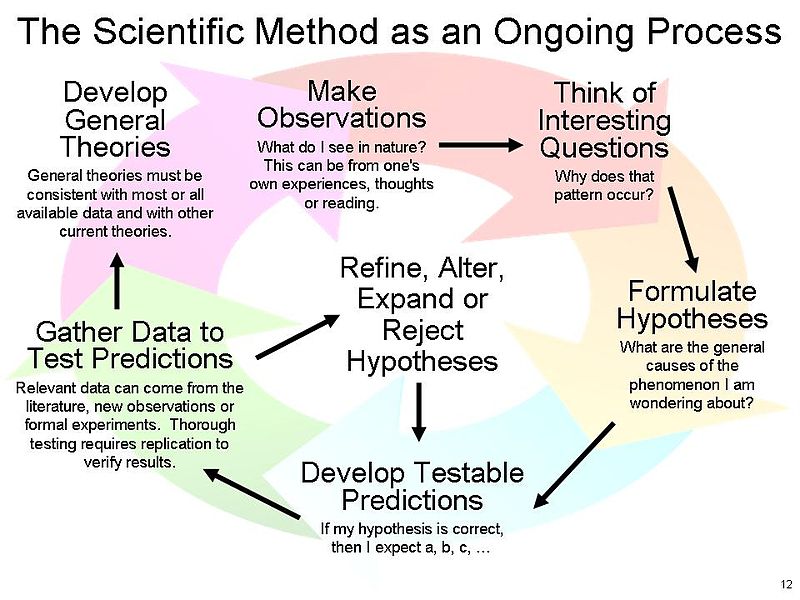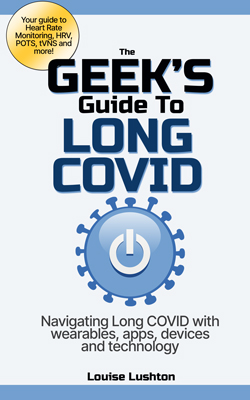aka How To “Do Your Own Research” – Properly
“Do your own research.” It can be a cry of rebellion or an indicator of ignorance. Too often, people who “do their own research” on the internet wind up lost in misinformation or conspiracy theories.
When it comes to Long Covid, there’s not a lot of settled facts because there hasn’t been as much time to ask questions, conduct experiments and draw conclusions. The available information grows every day but there are multiple theories, approaches and studies happening at the same time. There’s also a lot of DIY health information and advice online that can muddy the waters. When you’re doing your own research into Long Covid – or any health issue – it helps to bring your critical thinking skills.
This means approaching information with both an open mind and with skepticism. It means using critical thinking skills to analyze and make judgements about information. It means being ready to question things but also knowing the boundaries of your own knowledge and experience.
Advertisement
The Geek’s Guide To Long Covid is available as an ebook!
You’ll find a comprehensive guide to using wearables, apps and technology to cope with Long Covid. It offers detailed instructions on pacing, heart rate monitoring, HRV, POTS, deep breathing, tVNS, air purifiers, CO2 monitors and lots more.
Available from Amazon
The Scientific Method
When it comes to medicine and health, the scientific method is extremely important. Forgive me if this gets theoretical, but it’s handy to know this if you’re going down the rabbit hole of medical research.

Science and medicine aims to discover empirical facts and it does so through following the same basic method:
- A question is asked and conjectures made about how something happens or how something works.
- Preliminary information gathering happens to expand the question.
- A hypothesis is made. This is basically a prediction as to what causes the thing to happen.
- Experiments occur to test if the hypothesis is true.
- The resulting data is analyzed.
- Conclusions are made and reported.
- The hypothesis is re-tested.
Once published the data and conclusions are looked at by others, then questioned, re-tested, disproven or expanded upon.
The scientific method means information is always being questioned, tested and improved upon. If something is shown to be wrong, the scientific method acknowledges that and replaces it with new knowledge. There is no dogma or set ideas in this way of thinking, there are only facts and evidence. Scientific and medical facts exist because they’ve been repeatedly tested with the same result. This then becomes accepted science or accepted medicine.
With accepted science or accepted medicine there is always room for questions but the onus is always on the questioner to provide proof of their hypothesis with evidence.
As mentioned before, Long Covid is new and so is the existing research into it. More info comes out every day but there’s a lot to wade through. When you’re doing your own research into Long Covid you need to always be asking these questions and using critical thinking.
Critical Thinking
Things to consider when reading an article, watching a video, listening to a podcast:
- Who is providing the info?
– What are their qualifications? Are they officially qualified (e.g. degree or recognized qualification of some kind) in the area of expertise that they are referring to?
– What other experience and knowledge do they have?
– What is their motive for speaking on this topic? Are they an employed journalist? Do they make money from speaking on the topic?
– Were they paid by a commercial entity to do the research or provide the information?
– Have they declared any conflicts of interest? - Is the information backed up by evidence?
– Do they cite official studies that have been published in recognized journals?
– Are they only relying on anecdotal evidence e.g. this happened to one or two people, the story implies it’s common or that one person’s experience can be extrapolated into truth - Where is the information published?
– Does it appear in a reputable source? This might be a peer reviewed medical or scientific journal, a major media outlet, a university publication or perhaps a well-researched printed book.
– If it’s a mainstream media article, is it from a recognised unbiased outlet? (check the list here)
– If it’s a podcast, video or webpage, who runs it? Are they recognized as authoritative by others? - How is the information presented?
– Does the article give context for the facts presented?
– Does it editorialize or use opinion? Does it use persuasive language to try to get you to agree with their position? - What is my own bias or position?
– Does the information confirm my own ideas? Does it challenge them? - Where does the information sit within a broader context?
– Can you find reputable information with similar evidence and that comes to the same conclusions?
– Can you find reputable information that contradicts what you’ve read or finds opposing evidence?
Remember that the internet means absolutely anyone can post a video or write something and sound like they know what they are talking about. People say “everyone is entitled to an opinion” but really you should only be entitled to an opinion you can back up with some reputable evidence.
Here’s some more info on approaching an idea or information with critical thinking skills.

A Few Handy Research Terms To Know
Peer review. Peer reviewed science and medical articles are considered to be of very high quality. Peer review occurs when the research and evidence is evaluated by one or more people with similar qualifications or competencies. It’s a way of ensuring high standards when it comes to publishing research.
Pre-print publication. This is research that has been made public but has yet to be subjected to peer review. It’s best to consider this research as preliminary. Take it with a grain of salt.
Control group. In the context of medical research, a control group are the study participants who do not receive the treatment. They may be healthy, compared to the ill people being studied, though this is not always the case.
Placebo. A placebo is a substance or action that has no therapeutic value. It is essentially an inert or sham drug or an activity that does not produce any response. The placebo effect is when people report a response to a drug or action despite it making no real difference. The effect occurs due to the brain’s role in our health. If data shows a change in the control group, this is considered to be part of the placebo effect.
Blinded and Double-blinded. To prevent unconscious bias when a study is conducted, information that may effect the outcome of the study is withheld until the experiment is over. A participant in a study may have expectations or congitive biases that will change the outcome of the experiment for them. Thus, blinded studies keep secrets, as it were. Double-blinded studies suggest that both the research subjects nor the researchers themselves have information withheld during the experiment. This can occur through randomization, encrypting or anonymizing data and of course through placebos.
Clinical Trial. Medical research that involves people (rather than animals or cells) is called a clinical trial. It is usually carried out by physicians and nurses in a hospital setting.
Phase 1-4. Clinical trials have different phases:
- A phase 1 clinical trial has only a small number of people (e.g. 20-80). It’s carried out to assess safety, dosage and identify side effects. It can include healthy people.
- Phase 2 trials have a larger number of people (over 100), will include people with the illness being studied and studies short term efficacy and side effects.
- Phase 3 has an even larger group of people (sometimes several thousand). It compares the drug/action with other interventions, and determines efficacy and safety over a longer term.
- Phase 4 trials happen after the drug or intervention has been released. It looks at the effects on the wider population.
N=x. Research papers often include this statistical term. A capitalized N stands for population size and a small n stands for sample size. So if research paper says “N=1000 n=250” then we know that the study had 250 people as subjects out of a total population of 1000.
Open-label trial. This is a clinical trial where blinding and placebos aren’t used. The research subjects know they are taking a drug or intervention.
Protocol. In the context of medical trials, this is the methodology used – the objective, design, statistical methods and organization of a trial. In the context of Long Covid, ME/CFS or other under-researched illnesses, you may see people refer to “Dr X’s Protocol”. This is typically an experimental treatment plan.
Biomarker. A biological indicator of a physical state, condition or disease. In essence, a biomarker offers a way to test for illness.
AE and SAE. Stands for adverse event and serious adverse event. These abbreviations may sometimes be used in research documents to describe things going wrong. An AE is an unfavourable occurance or result in a study participant. An SAE is when things go really wrong, like death, hospitalization, disability or other major problem.
You’ll find more scientific research terms listed here.
TIP: When searching for information on Google or other search engines, add the word “skeptic” to your term. This will bring up articles where people have questioned or examined the thing you’re looking up with a skeptical approach. Make sure you use “skeptic” with a “k”.
Where To Find Credible Information on Long Covid
Pubmed. This online database published by the US National Library of Medicine allows you to search multiple medical journals for published research articles. The database has over 34 million abstracts and citations. According to Pubmed, the articles included are usually from “academic publishers or institutions, scholarly societies, or government and non-governmental organizations.” These journals are typically peer reviewed and have high standards for research and evidence. If you’re looking for published research on Long Covid, this is a very good place to start.
Medscape. This is the main medical news site used by medical professionals so it’s very trustworthy. It features news and information about drugs and treatments and the articles are easy to read and understand. You need a free account to use the site and you can sign up as a “non professional”. You don’t need to use your real name.
Sci-Hub. Sci-Hub is a “shadow library” that gives access to millions of peer-reviewed research papers and books for free, ignoring various copyright laws. The creator felt that the high cost of research papers behind paywalls hindered science and the flow of information. Also, the authors of research papers do not usually receive any royalties from the publications in question. Hence, Sci-Hub fills a gap. The URL changes but a search should bring it up. Whether you use Sci-Hub is up to you. Alternatively, if you find an article you want to read and it’s paywalled, contact the author/s directly. Often they’ll happily send you their work free.
Medical News Today. This site offers handy summaries of new research. It’s written by science journalists who take a science-first approach. Their editorial policy is to provide accurate, unbiased information.
News Medical. Another great medical news site curated by scientists and medical professionals. The site is certified by the Health on the Net Foundation which assesses reliability and trustworthiness. The site is based in the UK and Australia but reports on medical issues worldwide.
Healio. This is a site mainly for health care professionals but it’s open to everyone and the news section is very readable. It’s divided into various disciplines (cardiology, gastroenterology, etc) and aims to provide in-depth specialist clinical information.
Medical XPress. Another medical news site, run by the Science X network. They pride themselves on curating accurate scientific content.
Patient-Led Research Collaborative. This website is run by Long Covid patients who are also researchers.”Our mission is to facilitate patient-led and patient-involved research into Long Covid and associated conditions while following rigorous research methodology, and to advocate for policies that enable patients, particularly the most marginalized, to access care and live with dignity.”
Long Covid Alliance. This network of researchers, health advocates, disease experts and drug developers have joined together to study Long Covid. Their site posts news and their own research articles.
Survivor Corps. A US-based grassroots collection of Long Covid patients and supporters advocating for research into the illness. The site has a huge amount of useful information and research, updated regularly.
Be Wary
There’s a lot of misinformation and unproven treatments and ideas out there. Read more on our Be Wary page.

